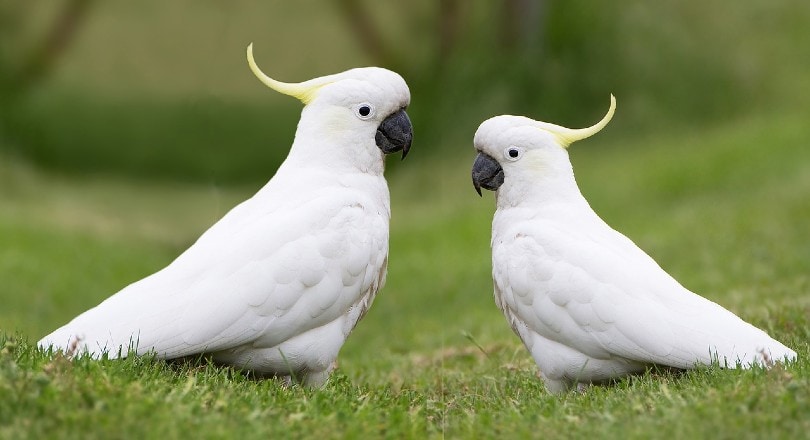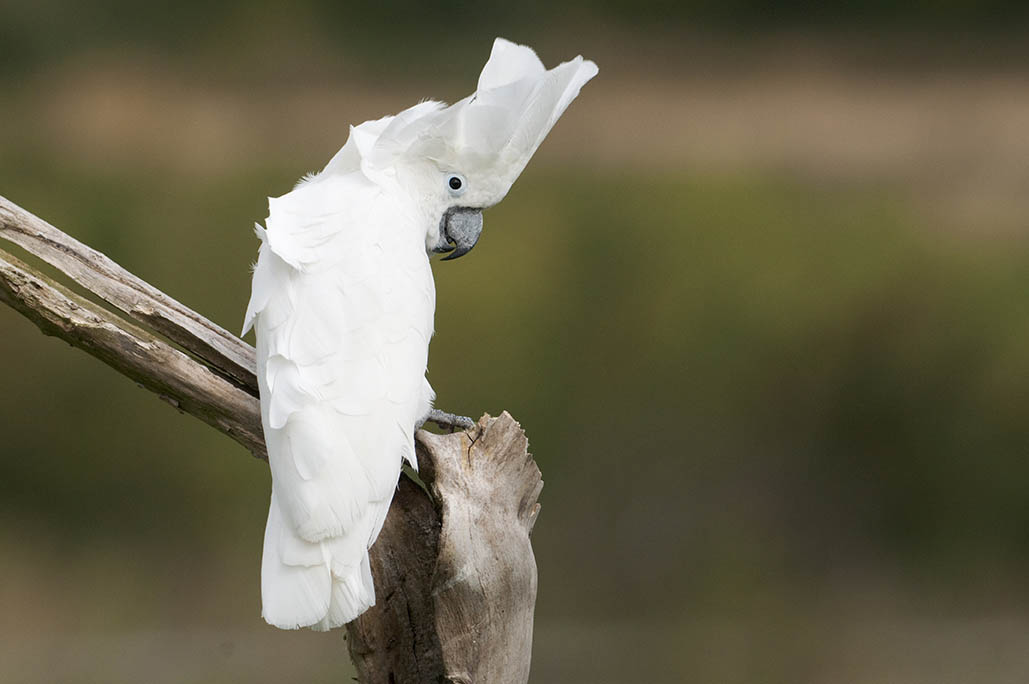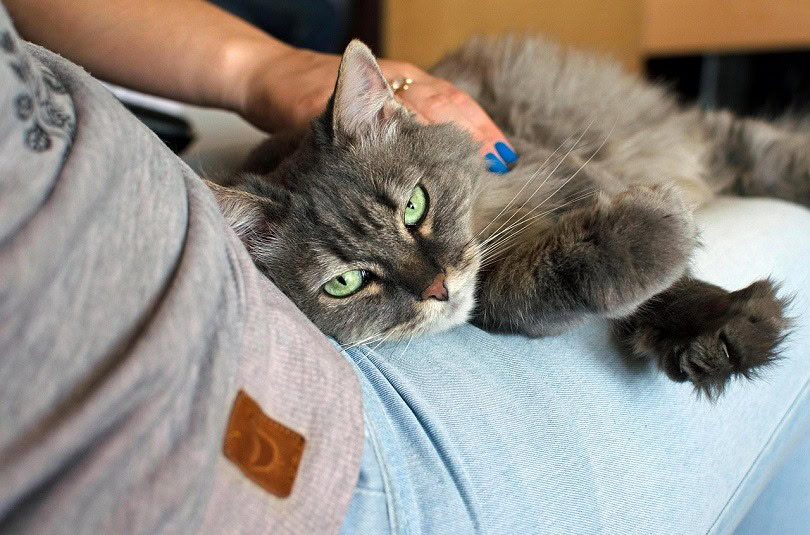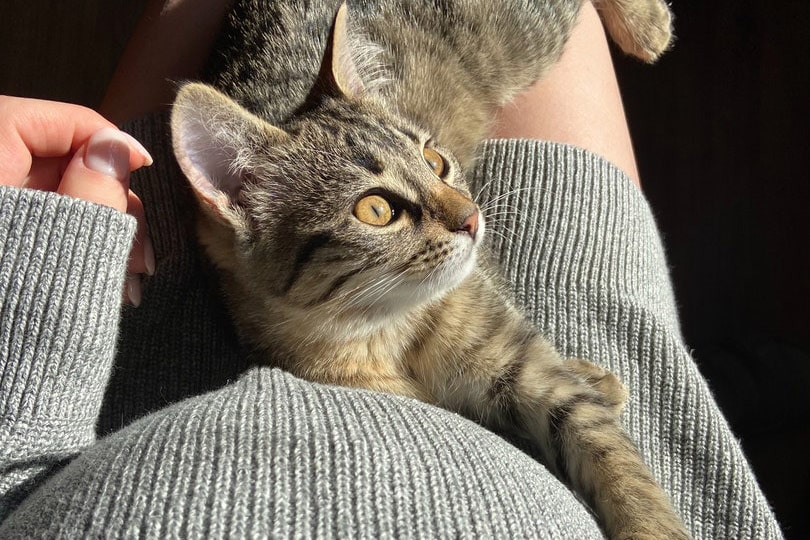The cockatoo is a popular pet among serious bird lovers. They are a little more expensive to purchase but they have long lifespans and can live 30 years or more. During this time, you are sure to hear them make a variety of sounds and calls.
We will discuss these calls to see if we can help you determine their meaning to help strengthen your bond and improve your pet’s quality of life. We’ll also supply you with audio so you can compare.

Cockatoo Sounds
The cockatoo will make several sounds naturally, and it will also mimic sounds that it hears, so each bird will be unique in some of the sounds it creates. It also follows the saying, “When in Rome, do as the Romans do.” That is to say; if you are loud or live in a noisy environment, your bird will also be loud. If you are quiet and soft-spoken, your bird will also turn down the volume considerably.


The 6 Cockatoo Sounds & Their Meanings
Some experts recommend keeping a diary or journal of bird noises. Keeping track of your cockatoo’s noises and behaviors can help you learn more about them and the meaning behind their sounds. Keep track of what kind of sound you are hearing, the time of day, who is in the house, what’s happening outside, etc. Also, take note if your bird is pacing in the cage or showing other signs of anxiety.
1. Squawk or Screech

The squawk or scream of the cockatoo is loud and sharp. It is usually intended to let you know that there is trouble nearby. If you have a cat that’s prowling around the cage, or an electrician working on a pole nearby, you will likely hear this sound. Strangers in the house, vacuuming, or loud noises may also cause your bird to make this sound.
2. Whistling

The cockatoo is a great whistler and can learn very melodic whistles if it hears it enough. There are even books and YouTube videos showing you how to teach your cockatoo to whistle. If your bird is whistling, it is relaxed and doesn’t feel like it is in danger. It could be bored or trying to get your attention.
3. Talking

Your cockatoo can learn to say plenty of words and may choose to speak one at a time or string together long sentences. Many experts believe that this is actually a form of camouflage and a way to fit in with the surroundings. Since other people are talking, it will talk too. However, a talking bird is comfortable and doesn’t feel intimidated or threatened.
4. Singing

You may also find your birds singing if you play a lot of music in your house or sing yourself. Your bird may also dance to the music if there is a strong beat. Singing is similar to talking, and while we may not know exactly why it’s doing it, your bird will only sing when it’s relaxed and in a good mood.
5. Hiss

If you hear your cockatoo hissing, there is a good chance that it feels threatened. Continuing to be in close range of your bird may cause it to bite you. If your pet starts to hiss, it’s best to move away and give it some space to settle down.
6. Call

in the wild, you might hear a cockatoo make calling sounds to find its friends or to find a mate, but in the home, you might hear them if you leave the room and they are wondering where you went. Your bird may also start to call you if it’s feeling bored or lonely. It will expect a response, and ignoring it can cause anxiety in your bird, leading to the squawking sound we mentioned earlier.
- You May Also Like: Citron-Crested Cockatoo Bird Species — Personality, Food & Care Guide

Summary
Your cockatoo may make several noises, and its vocabulary will grow and change over time as your bird ages and gets used to its environment. However, the vast majority will fall into the six categories we’ve listed above. Keeping a journal will show you things about their behavior, you might not notice otherwise, and you’ll start to learn when they are hungry, tired, bored, and happy. Learning more about your bird will help you bond better and lets you provide a better life for your pet.
We hope you have enjoyed our look into your bird’s behavior and have learned more about your bird’s behavior.
Also see:
- Best Cockatoo Toys – Reviews & Top Picks
- How Much Does a Pet Bird Cost? Price Guide
- Cockatoo vs. Cockatiel: The Differences Explained (With Pictures)
Featured Image Credit: Nigel Dowsett, Shutterstock










